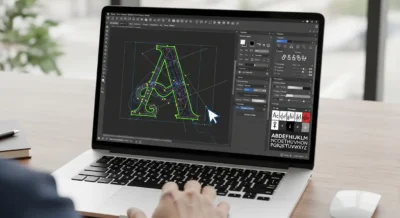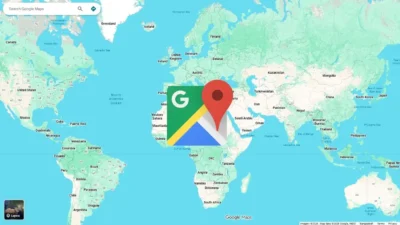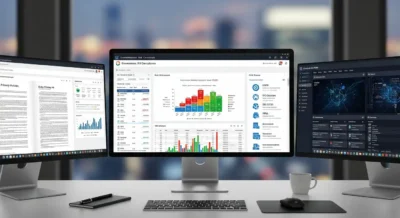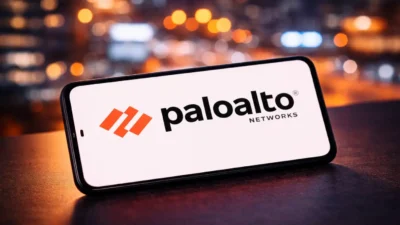In today’s fast-paced work environment, with teams often distributed across the globe, chaos is the default. Juggling deadlines, tracking tasks, and maintaining clear communication can feel like an impossible task without the right tools. A powerful project management software is no longer a luxury; it’s the central nervous system of any successful team, providing a single source of truth that transforms collaborative chaos into streamlined success.
As we look at the landscape in 2025, the leading platforms have evolved beyond simple to-do lists. They are sophisticated “Work Operating Systems” powered by AI, robust automations, and deep integrations. Choosing the right one is a strategic decision that can dramatically boost your team’s productivity and morale. Here are the top 5 project management software solutions leading the pack.
Monday.com
Monday.com has captured the market with its visually stunning and highly customizable interface, positioning itself as a “Work OS” that can be molded to fit almost any workflow. It excels at providing a high-level, color-coded overview of all ongoing projects.
For teams that thrive on visual planning and need a flexible platform for more than just projects, Monday.com is a top-tier choice. These features are why it continues to be a favorite.
- Exceptional Customization: Build boards and dashboards with dozens of column types, from status trackers to timelines, to create the exact workflow your team needs.
- Powerful Automations: An intuitive “if this, then that” automation builder allows you to eliminate repetitive manual tasks, like notifying a team member when a status changes.
- Multiple Project Views: Instantly switch between different views of the same data, including Kanban, Gantt, calendar, and chart views, to suit individual preferences and reporting needs.
- Vast Integration Marketplace: Connects seamlessly with hundreds of popular apps like Slack, Google Drive, Mailchimp, and Adobe Creative Cloud to centralize your work.
Best For: Marketing, sales, and creative teams; organizations that need a highly visual and flexible platform for managing diverse types of work, not just traditional projects.
Asana
Asana is a master of task management and team accountability, designed to bring clarity to who is doing what by when. It provides a powerful framework for breaking down large goals into actionable steps and tracking them across complex, cross-functional projects.
If your primary focus is on structured projects, clear ownership, and goal alignment, Asana provides an elegant and powerful solution. Its core strengths lie in its structured approach.
- Robust Task Dependencies: Easily create “blocking” or “blocked by” relationships between tasks, ensuring work happens in the right order.
- Workload Management: A dedicated feature helps managers see how much work is assigned to each team member, preventing burnout and allowing for easy resource allocation.
- Goals and Portfolios: Connect day-to-day work to strategic objectives with the Goals feature, and group related projects into Portfolios for a high-level executive view of progress.
- Timeline (Gantt Chart) View: An intuitive and beautifully designed timeline makes it easy to map out project plans, adjust deadlines with drag-and-drop functionality, and spot potential conflicts.
Best For: Project managers, product teams, and organizations that run structured, goal-oriented projects with complex interdependencies.
ClickUp
ClickUp’s mission is to be the “one app to replace them all,” and it comes remarkably close with its staggering array of features. It’s an incredibly powerful and versatile platform that consolidates tasks, documents, chat, goals, and more into a single ecosystem.
For teams seeking to consolidate their software subscriptions into a single, highly customizable hub, ClickUp’s ambition is its greatest strength.
- All-in-One Feature Set: Includes tasks, Docs, Whiteboards, Spreadsheets, Chat, and Goal tracking built directly into the platform.
- Unmatched Customization: Offers granular control over everything, from custom fields and statuses to over 15 different views, allowing you to build a system that is perfectly tailored to your team.
- Flexible Hierarchy: The structure of Spaces, Folders, and Lists allows for both simple task management and highly complex, multi-layered project organization.
- AI-Powered Tools: ClickUp AI is integrated throughout the platform to help users write content, summarize notes, generate task lists, and automate their work.
Best For: Tech-savvy teams, startups, and agencies that want to consolidate their tools into a single, highly powerful, and customizable platform.
Jira Software
Developed by Atlassian, Jira is the undisputed industry standard for software development teams using Agile methodologies. It is purpose-built to support the unique workflows of developers, from planning sprints and managing backlogs to tracking bugs and shipping releases.
While it can be configured for other uses, Jira’s deep feature set for engineering teams is unmatched by any other tool on the market.
- Agile-Native: Comes with pre-configured templates for Scrum (sprints, backlogs, story points) and Kanban (WIP limits, swimlanes) that work perfectly out of the box.
- Powerful Roadmapping: Advanced roadmaps allow product managers to plan and visualize initiatives across multiple teams and projects, aligning everyone on the big picture.
- Deep Developer Tool Integration: Offers best-in-class integration with the Atlassian ecosystem (Bitbucket, Confluence) and other essential developer tools like GitHub and Jenkins.
- Customizable Workflows and Reporting: Build custom workflows to match your team’s exact development process and generate detailed reports like burndown charts, velocity charts, and cumulative flow diagrams.
Best For: Software engineering teams, product managers, and any organization practicing Agile development methodologies like Scrum or Kanban.
Notion
Notion started as a note-taking app but has evolved into a uniquely flexible and powerful connected workspace. It combines documents, wikis, and databases into a single, collaborative environment, allowing teams to build their project management tools using “Lego-like” blocks.
For teams that value documentation and knowledge sharing as much as task tracking, Notion offers an unparalleled level of freedom.
- Integrated Docs and Databases: The core strength is the ability to create powerful databases (for tasks, projects, etc.) directly inside free-form documents, linking knowledge and action together.
- Ultimate Flexibility: There are no rigid structures. You can build a simple to-do list, a complex Kanban board, or a multi-relational project database, all within the same workspace.
- Powerful Templates: A vast community and official template gallery provide starting points for almost any use case, from content calendars to employee onboarding.
- Notion AI: Similar to ClickUp, Notion has integrated AI to help summarize meeting notes, draft content, and create action items from unstructured text.
Best For: Startups, creative teams, and knowledge-based organizations that need a flexible, all-in-one knowledge base, documentation hub, and project tracker.
Conclusion
The best project management software for your team in 2025 depends entirely on your unique needs, industry, and company culture. For visual workflows and broad customizability, Monday.com shines. For structured, goal-driven projects, Asana is a master of accountability. If you’re looking for a single app to handle everything, ClickUp is your answer. For software development, Jira remains the undefeated champion. And for ultimate flexibility and integrated knowledge management, Notion provides a blank canvas for innovation.
By evaluating your team’s core challenges and strategic goals, you can select a tool that not only organizes your work but fundamentally enhances the way you collaborate and achieve success.













